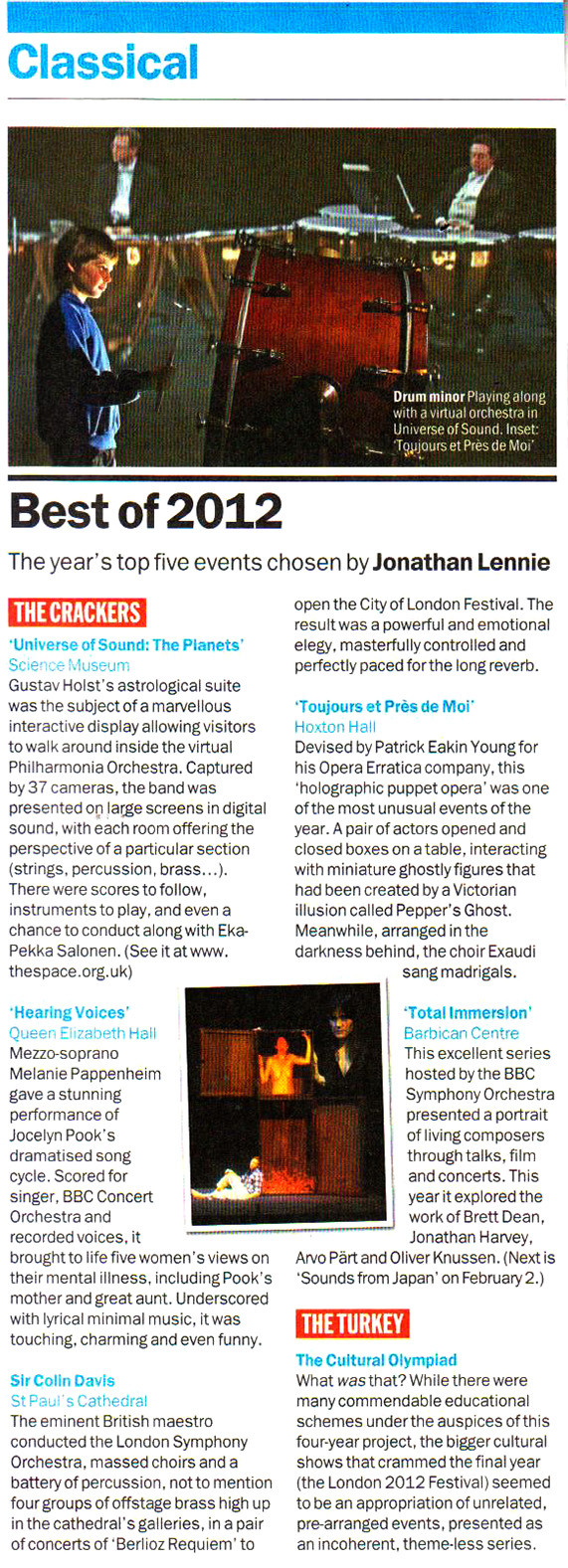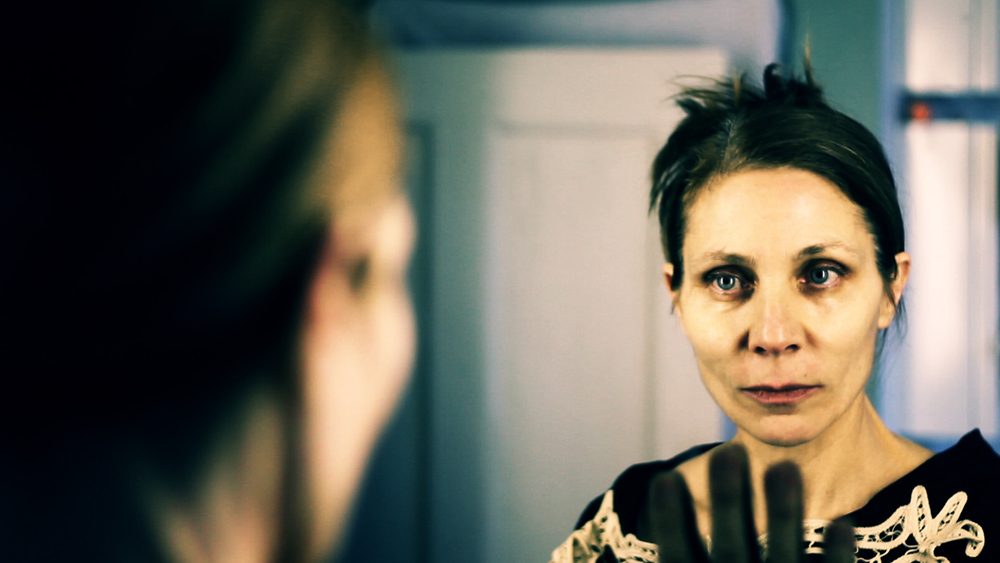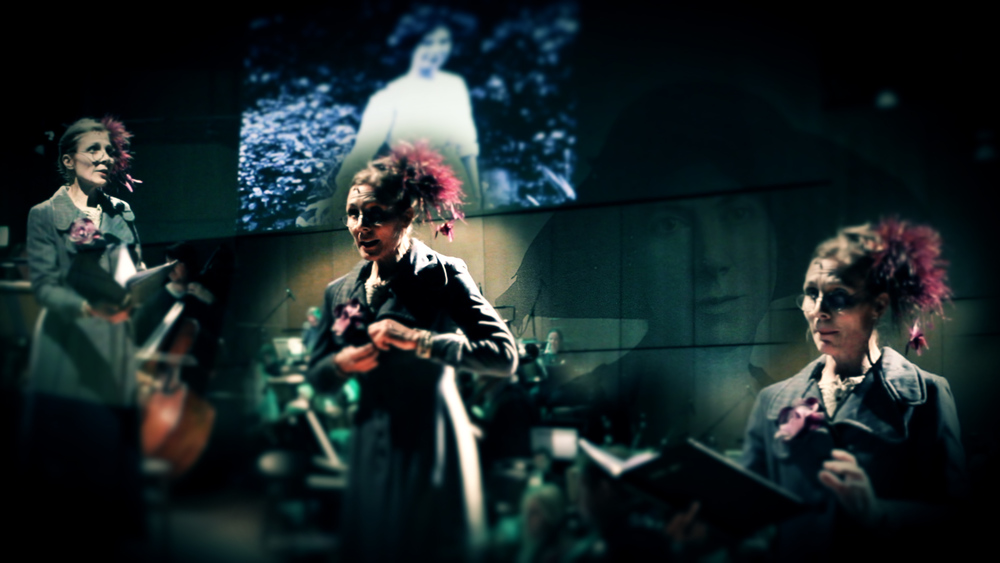December 3, 2013
Hearing Voices
Notes & Reviews
A new symphonic song-cycle, Hearing Voices, Premiered by singer Melanie Pappenheim and the BBC Concert Orchestra in the Queen Elizabeth Hall at London's Southbank Centre on Monday December 3. The concert was conducted by Charles Hazelwood.
“Phyllis’s words were given to mezzo-soprano Melanie Pappenheim, who rendered them in a performance of part-singing, part-speech that was a marvel of quiet and far-from-hysterical intensity. Truly it was beyond praise. To follow this with Patrick Nunn’s derivative arrangement of Muse’s hit single Hysteria was as crass as telling a joke after a funeral.”
- The Telegraph
“The centrepiece of this concert on the theme of music and madness was a suggestive, subtle new work from Jocelyn Pook.
Anybody who is familiar with the work of Dr Oliver Sacks will know the power that music can have over the mind. His books have presented some truly remarkable case studies of how music and the brain interact and one of his books, The Man Who Mistook His Wife for a Hat, has even been turned into an opera.
It is clear that music can touch thoughts and feelings beyond our everyday consciousness. That does not, however, mean it is necessarily an easy subject for composers to explore and a concert such as the BBC Concert Orchestra’s “H7steria” on the theme of music and madness is not the kind of event that comes round often.
The raison d’être of the programme was BBC Radio 3’s commission of a new work on the subject from Jocelyn Pook, coincidentally one of the winners at the BASCA British Composer Awards that afternoon. Hearing Voices was inspired by the experience of Pook’s great aunt and includes the testimonies of five women who had suffered mental illness. The women’s reminiscences are heard on tape and some were also spoken and sung live by Melanie Pappenheim, costumed to play various roles. Pook, best known for her soundtrack to Stanley Kubrick’s film Eyes Wide Shut, has pitched her score at the point where it complements, but does not crush, these fragile memories. Chord progressions stir into movement as in Philip Glass, or spawn sweet lyricism somewhere between Ravel and Andrew Lloyd Webber. The effect is at once suggestive and subtle. And yet –there was something inherently distasteful about such deep and painful confessions being used as fodder to rouse some easy emotions.”
- Richard Fairman, Financial Times
“Phyllis’s words were given to mezzo-soprano Melanie Pappenheim, who rendered them in a performance of part-singing, part-speech that was a marvel of quiet and far-from-hysterical intensity. Truly it was beyond praise. To follow this with Patrick Nunn’s derivative arrangement of Muse’s hit single Hysteria was as crass as telling a joke after a funeral.”
- The Telegraph
“The centrepiece of this concert on the theme of music and madness was a suggestive, subtle new work from Jocelyn Pook.
Anybody who is familiar with the work of Dr Oliver Sacks will know the power that music can have over the mind. His books have presented some truly remarkable case studies of how music and the brain interact and one of his books, The Man Who Mistook His Wife for a Hat, has even been turned into an opera.
It is clear that music can touch thoughts and feelings beyond our everyday consciousness. That does not, however, mean it is necessarily an easy subject for composers to explore and a concert such as the BBC Concert Orchestra’s “H7steria” on the theme of music and madness is not the kind of event that comes round often.
The raison d’être of the programme was BBC Radio 3’s commission of a new work on the subject from Jocelyn Pook, coincidentally one of the winners at the BASCA British Composer Awards that afternoon. Hearing Voices was inspired by the experience of Pook’s great aunt and includes the testimonies of five women who had suffered mental illness. The women’s reminiscences are heard on tape and some were also spoken and sung live by Melanie Pappenheim, costumed to play various roles. Pook, best known for her soundtrack to Stanley Kubrick’s film Eyes Wide Shut, has pitched her score at the point where it complements, but does not crush, these fragile memories. Chord progressions stir into movement as in Philip Glass, or spawn sweet lyricism somewhere between Ravel and Andrew Lloyd Webber. The effect is at once suggestive and subtle. And yet –there was something inherently distasteful about such deep and painful confessions being used as fodder to rouse some easy emotions.”
- Richard Fairman, Financial Times





